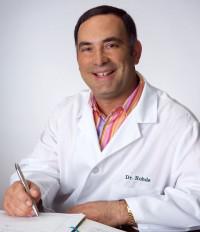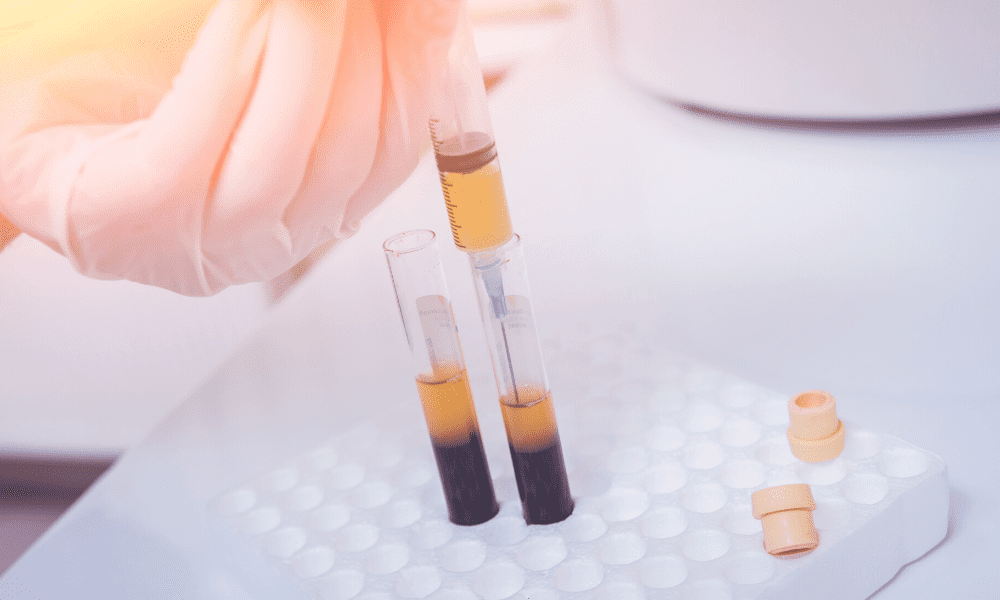An FAQ on Stem Cells and Regenerative Tissue Therapies provided by Renew Total Body Wellness Center.
The 4 R's of Gut Health
Gastrointestinal (GI) dysfunction is the number one problem that I find in my patients daily.
I have many patients who call with a specific issue like fatigue, trouble sleeping, or hormone problems and they want a quick fix. For example, a person with fatigue and sexual dysfunction who wants replacement hormones “like a friend is taking”. When we start to explore problems and symptoms on our complete intake history, we start to see a much different picture with gut health and other issues. Finding a low hormone level is often just a symptom of many other underlying issues and is usually NOT the “root cause”. I regularly see patients who find that a quick fix worked for a bit, and now they’re back to the same point they were at initially.
I hate to tell them that the underlying problem is yet undiscovered and we need to look at other causes of their health problems. These usually include gut issues because what makes our body function is the food we eat, properly digested, nutrients being properly absorbed, and finally appropriate metabolic function to make energy for the whole system to run properly. If the gut isn’t working well even the most expensive organic foods and supplements merely become expensive poop. In another light - putting expensive premium gasoline in a diesel truck will not lead to a good outcome! So, if you have constipation, loose stools, gas or bloating after meals, heartburn, or any other gut issues, then your gut is unhealthy.
GI health is linked to what we eat and drink, where we live, who we hang out with, how much we sleep, what type of exercise we do, the stress in our lives, and something most of us never consider - who blessed us with our genetics. The gut-brain axis is amazing. When I see someone who is struggling with anxiety, depression, ADD, Parkinson’s, and even Dementia - we need to evaluate the gut. If your gut is unhealthy, you can’t efficiently make the brain chemicals you need to deal with stress, and then symptoms of anxiety and/or depression surface. Similarly, you can’t heal your brain and nervous system if you can’t absorb the healthy oils to make healthy cell walls. Even worse, if you’re putting in unhealthy inflammatory oils then these are then made into unhealthy cells and your body won’t function well!
At Renew we start with time-tested physiological methods of improving GI health. Hippocrates stated some 2,500 years ago: “Illnesses do not come upon us out of the blue. They are developed from small daily sins against Nature. When enough sins have accumulated, illnesses will suddenly appear.”
Let the Healing Begin
An approach I use on a regular basis is called the 4R Functional Medicine approach. Here are the 4 R's of gut health and how they can improve your overall well-being!
1st R - Remove
First up, remove! Remove refers to two things that potentially should be removed from our body. The first is foods you may be sensitive to. Two common foods, wheat and dairy, can be hard for many people to completely digest. This drives inflammation into the gut and your entire body. Our gut-based immunity becomes irritated by regular consumption of these foods. It is possible to test for these and other sensitivities via IgG testing at specialist labs and/or by elimination testing.
The second thing you want to remove from your body is ‘bugs’. Your gut is loaded with trillions of bacteria and has lots of microbial activity - making nutrients, breaking down nutrients, making brain chemicals, etc. Unfortunately, when things are out of balance, overgrowth, or opportunistic microorganisms multiply and can include bacteria, yeasts, viruses, and parasites. Small amounts of very invasive bugs and large amounts of less invasive bugs can be enough to throw the GI tract into an inflammatory state, potentially causing all sorts of problems. Safe and specific specialized anti-microbial strategies are available to clear out the “bad” bugs but safeguard and nourish the “good” bugs.
2nd R - Replace
The second R in Dr. Rohde’s 4R Functional Medicine approach is - Replace!
Something you can do daily to help the digestion process is include the use of lemon juice or apple cider vinegar and/or a digestive enzyme before meals to help bring things into balance.
Dr. Rohde recommends slowing down at mealtimes and combining this pre-eating regimen of ACV and digestive enzymes with giving thanks for your food and practicing mindfulness while you eat. We need to take time and stop life’s activity, so our body is in a state of “rest and digest” or in a parasympathetic state which is the anticipatory phase of digestion and prepares your body to release the enzymes you need to properly digest your nourishing foods.
Eating in the car on the way to the kids' next sporting activity is a recipe for a gut health disaster! This can put you in the fight or flight state, or sympathetic state, which prevents digestion by channeling blood flow away from our gut - when it’s needed the most. When we are not mindful of our food when we eat it, we generally don’t produce enough salivary enzymes, stomach acid, digestive enzymes, and churning of our stomach to digest our food properly.
3rd R - Reinoculate
Third step - Reinoculate! You need to rebuild healthy gut bacteria!
Probiotics are part of this equation, but I believe fermented foods are even more important. There has been a huge amount of research on the human microbiome over the past decade, and as I mentioned on day 1, these bugs are vital to our best health! We know that rural people living an old-fashioned lifestyle have much higher GI microbial diversity than stressed-out city dwellers. Microbial diversity is considered a major component of our health.
At Renew, I put a lot of focus on our gut flora: I use probiotics in my nutrition practice, but what is much more powerful than that, is God’s plan for our body to heal with food. In this case FERMENTED foods. I’m a German kid and I grew up eating sauerkraut which has kept generations of Germans healthy. Every culture has a fermented food that goes way back in history except in the American melting pot where we have adopted those of other countries.
You may also have heard of prebiotics, which form another layer of nutritional GI health - these are the foods we are supposed to eat that feed the gut bacteria and keep them healthy and thriving. Think fruits, veggies, and other forms of fiber that our gut bacteria feed on and make gut fueling and repair nutrients from - like L-glutamine, for example. I regularly see people with low counts of these vital gut bacteria and that predisposes us to inflammatory health issues like autoimmune disease, heart disease, diabetes, and even cancer. This is how VITAL a healthy gut is!
4th R – Repair
Last up – Repair! With all the gut stress you may have experienced by eating too many of the wrong foods and being subject to minor or major microbial infections, you could be sitting with a leaky gut, also known as intestinal permeability.
This means that the cells of the intestinal membrane become damaged due to inflammation and toxins. Where the cells are supposed to be glued together with tight junctions, the cells become separated, or leaky, and allow inflammatory endotoxins, food proteins, and other substances into closer contact with our immune system, and into our bloodstream contributing to the body-wide inflammatory issues.
The right foods can heal the gut lining. These include prebiotics and probiotics, fermented foods, homemade bone broth from grass-fed animals, l-glutamine (an amino acid), and aloe vera. There are some excellent gut repair formulations on the market that combine some of these ingredients. A favorite I use regularly is GI Revive which is available here at the office. When supplementation is combined with fermented foods during our repair regimen then healing really kicks up!
This is the 4R Functional Medicine Approach - Remove, Replace, Reinoculate, and Repair. We hope you enjoyed it and learned something you can incorporate in your everyday life to help your gut heal so you can live your best life!
 Dr. Thomas Rohde
Anti-Aging and Functional & Regenerative Medicine Physician
Dr. Thomas Rohde
Anti-Aging and Functional & Regenerative Medicine Physician
You Might Also Enjoy...
Now more than ever, taking quality vitamins and supplements is critical to building your health and maintaining a strong immune system. And you should know what is inside each capsule you swallow.
Platelet-Rich Plasma is a non-surgical regenerative therapy that is used to encourage healing and reduce tissue inflammation.
The holiday season can easily turn into an excuse to overindulge - these tips can help you stay on track.
Simple good-health suggestions to help boost your immune system - especially during Influenza or other cough and cold seasons.
Dandelions cannot grow in concrete. Likewise, viruses cannot take root in a strong immune system. Doc offers recommendations to build and strengthen your immune system to help your body defend against disease.









